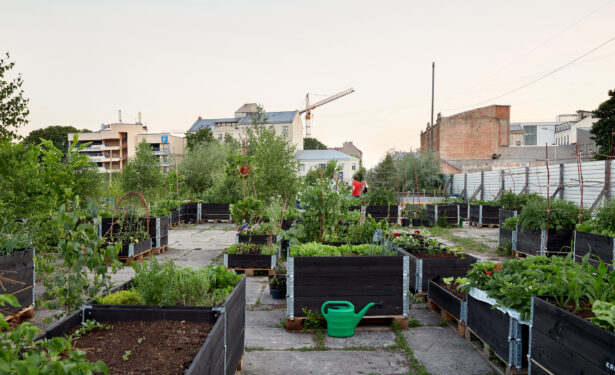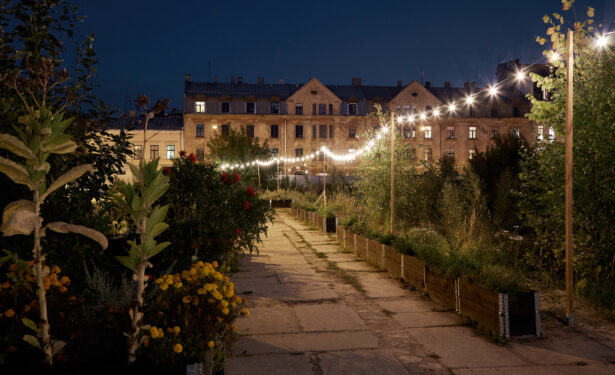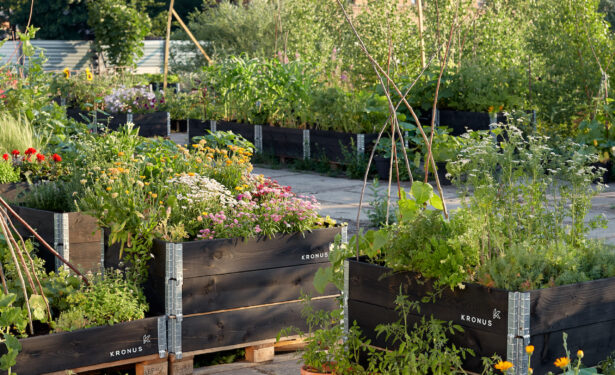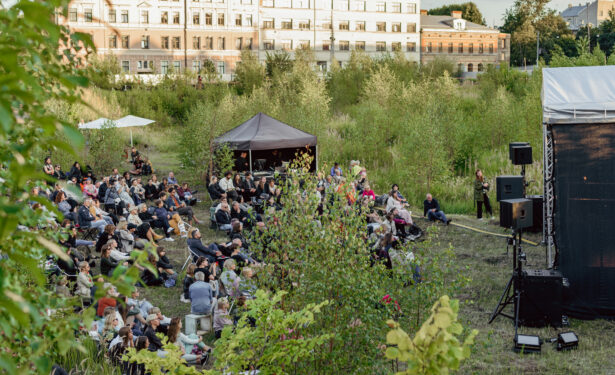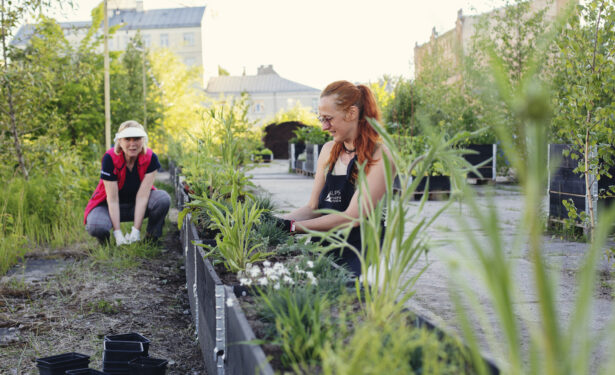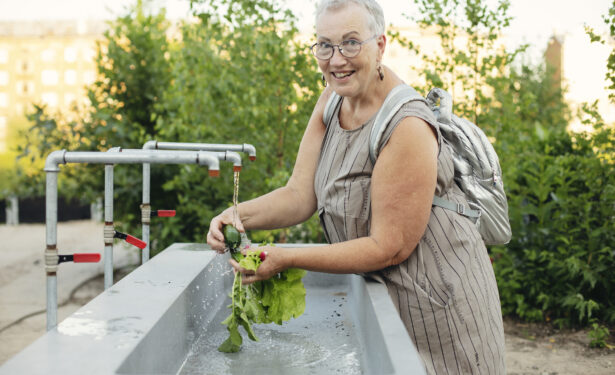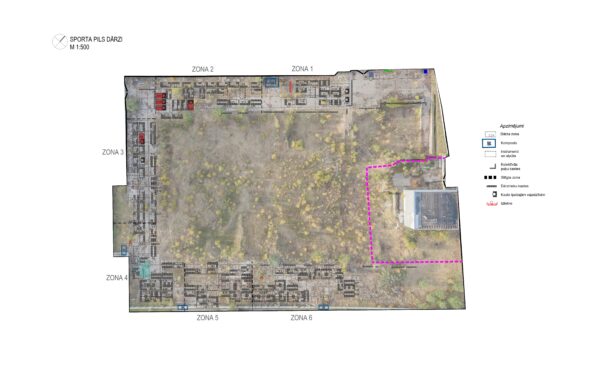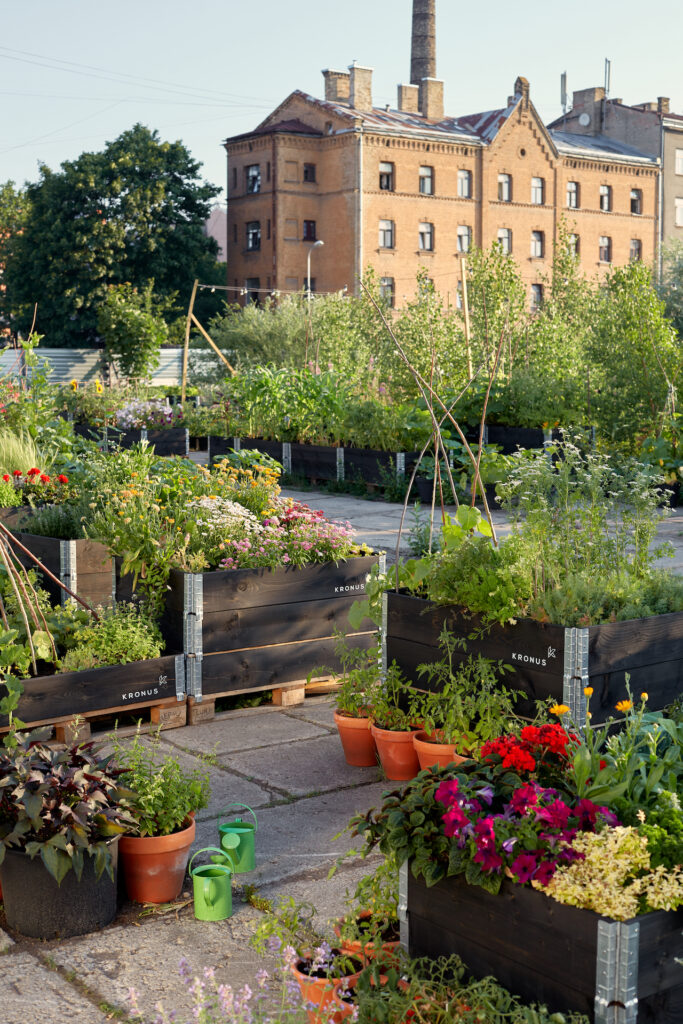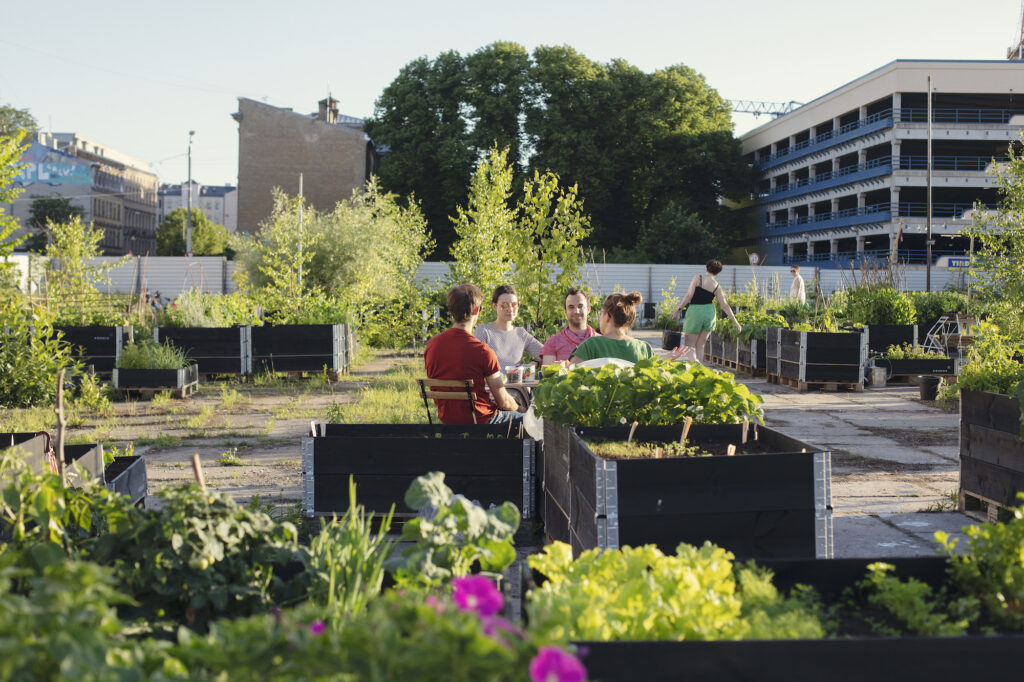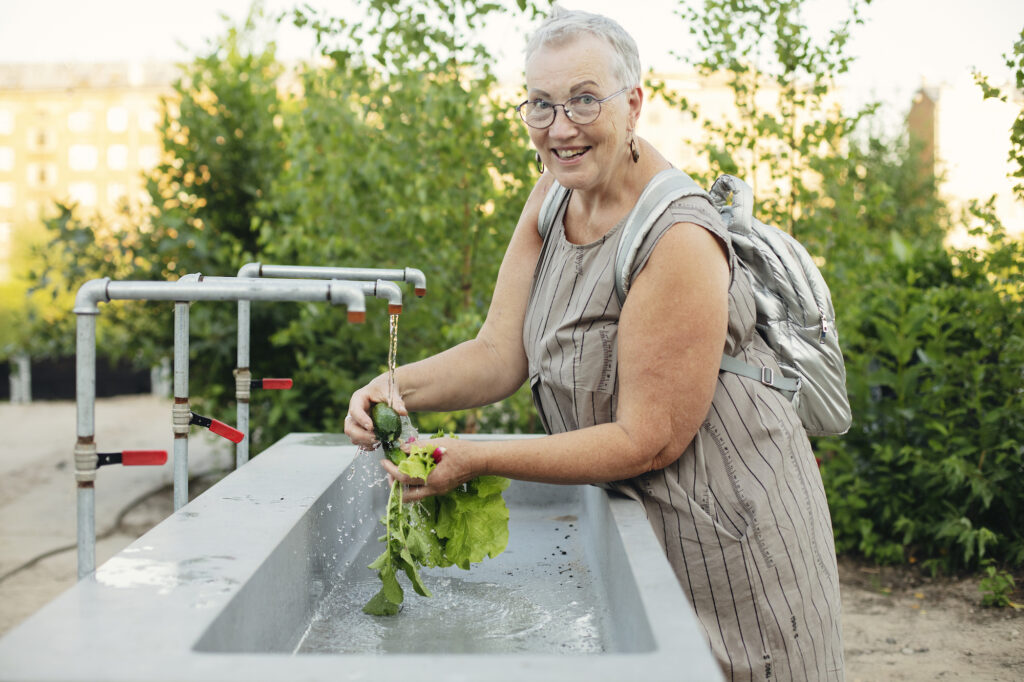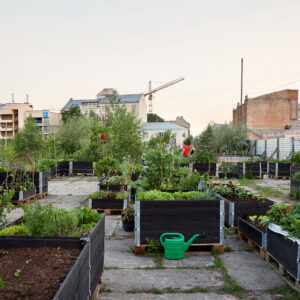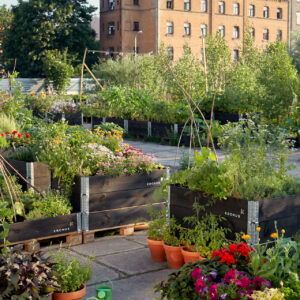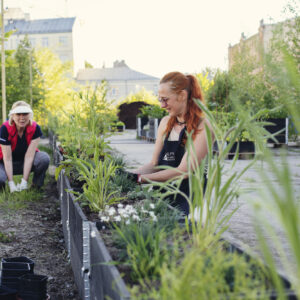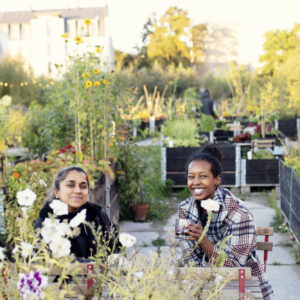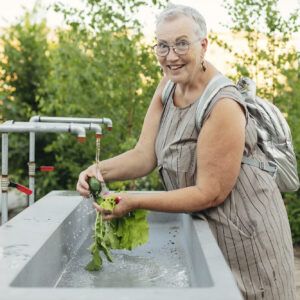- 11 August 2023
- 3305 defa okundu.
“Sporta pils dārzi” Urban Garden
A grassroots initiative for recovering an abandoned site becomes a new system, a model of public space that combines productive logics and non-domesticated nature as a new community space.
Previous state
The project takes its name from the building that previously stood on the two-hectare site: the Sporta pils (sports hall). Built in 1970, the sports hall housed various activities over the years, including a shopping centre on the first floor. The building was demolished in 2008 leaving the land open for future urban plans that were never carried out. Nature took over the enormous empty space.
From the demolition until 2020, the plot was closed to Riga’s residents but was often occupied by drug users or by groups of drinking teenagers, who would hide among the trees and bushes that had grown up on the plot. Additionally, the lot was used as a dumpsite, where people disposed of all kinds of rubbish, from dog faeces to broken televisions
Aim of the intervention
The project to turn a deteriorated site into a lush garden aimed to demonstrate that all citizens have the possibilities and the right to improve their environment and how some actions can generate collective well-being. The idea was not just to install a group of planters, but to build community in a neighbourhood where people had scant ties to one another, despite living in close proximity. The objective of the project was to create a sense of belonging and a place that could serve as a platform for social transformation – a place that would promote a healthier and more sustainable lifestyle founded on care and commitment among citizens. The Sporta pils community garden is the first urban gardening project in Riga, and it has served as a model for new types of urban landscapes and the activation of a more conscious, outgoing and creative citizenry. The project began on the initiative of one neighbourhood resident but was ultimately made possible by more than 200 people. Its future success or failure still depends on continued participation and commitment from the community.
Description
The initiative began at a meeting held in September 2020, attended by more than 100 people. Over the following two weekends, more than 200 volunteers and local business owners cleaned and cleared the plot. A public education programme on sustainable gardening then began, coordinated over the internet, to raise €6,000 for water and electricity installations through a crowdfunding effort. The project was so successful that it raised €15,000 and garnered support from residents and the city council.
The materials for the planters (pallets and their straps) and the soil were donated by local companies. The planters were arranged in such a way so as to leave an open meadow for public use and a recreational area in the centre. The members of the community now tend to the 140 planters, and each member has a small plot of 12.5 square meters where they can install three to eight raised planters, pots and garden furniture. In total, more than 650 planters occupy the site, including shared areas that are cared for by the community.
Assessment
This project has set a new precedent in Latvia, showing that a garden can become a platform for promoting open community living, tolerance and solidarity. Moreover, the garden was envisioned as a place for mutual support between the community members who share in its care, thus strengthening ties and offering a solution to the problem of isolation affecting some people in the neighbourhood. The Riga City Council has now recognised the social and collective importance of Sporta pils gardens. Although the council was not the originator of the intervention, it now supports the project and has invited people to think of new ways to promote urban gardens among the city’s residents. Thus, this initiative and the community it has formed have fuelled a knowledge exchange with other similar projects aimed at revitalising other neighbourhoods in Riga. The gardens of Sporta pils have earned well-deserved notoriety and currently receive more than 4,000 visitors every summer.
The community that has grown up around this project, entirely self-managed, has proven its strength by acting as an irreplaceable support system during the pandemic and the current war in Ukraine. Despite this complex situation, the Sporta pils community continues to care for the garden, while collecting donations for Ukrainians and welcoming those seeking refuge in Riga.
